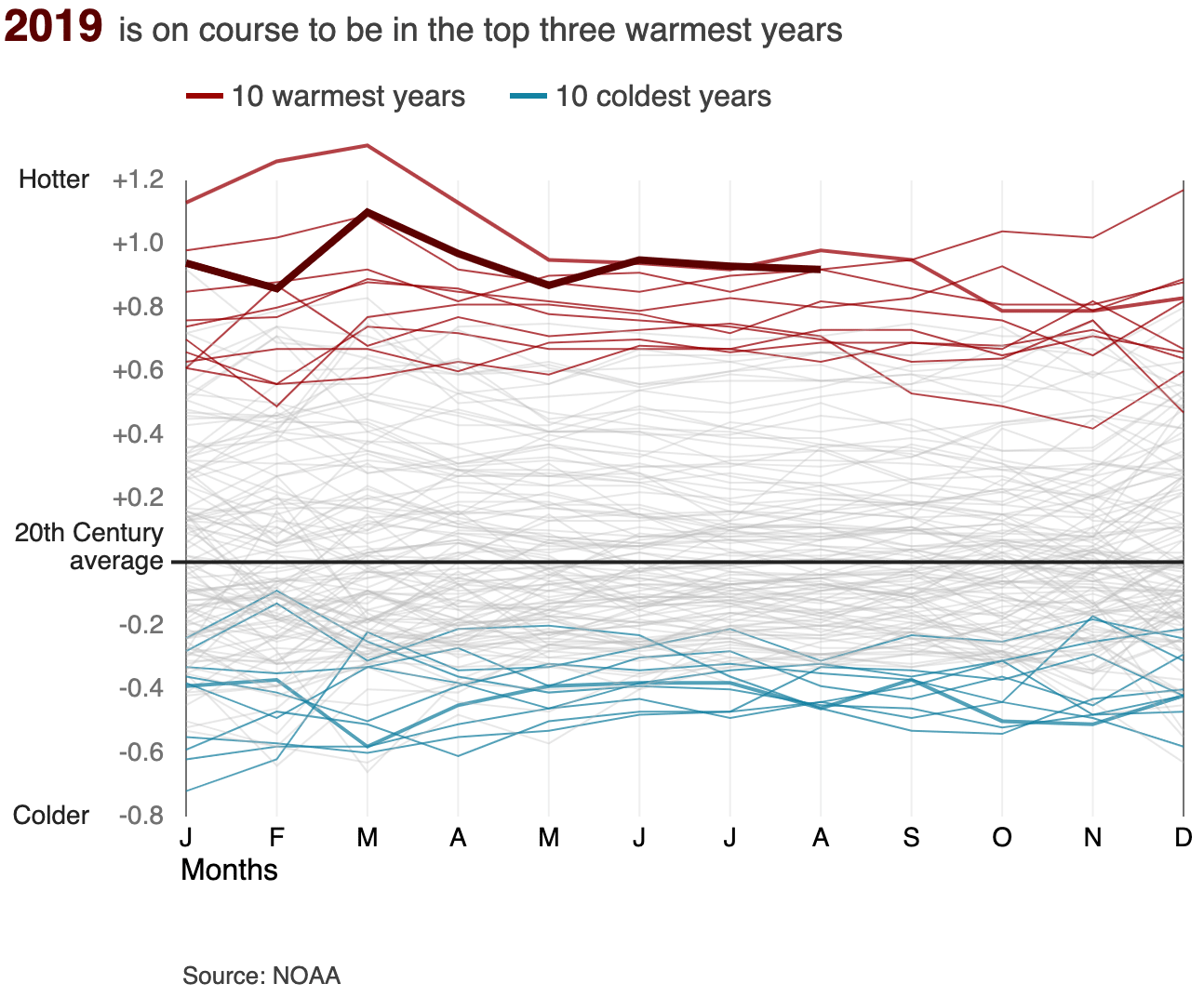Hundreds of temperature records broken over summer
Nearly 400 all-time high temperature records were broken over the summer. …

 Image copyright Getty Images
Image copyright Getty Images Almost 400 all-time high temperatures were set in the northern hemisphere over the summer, according to an analysis of temperature records.
The records were broken in 29 countries for the period from 1 May to 30 August this year.
A third of the all-time high temperatures were in Germany, followed by France and the Netherlands.
The analysis was carried out by the California-based climate institute Berkeley Earth.
Over the summer, there were 1,200 instances of places in the northern hemisphere being the hottest they’d ever been in a given month.
Sorry, your browser cannot display this map
Source: Robert A. Rohde/Berkeley Earth. Map built using Carto
The data included measurements from weather stations in the northern hemisphere that had at least 40 years of observations.
Some of this data has not yet been subjected to formal review by weather agencies. These reviews, to check for problems that might have produced false readings, sometimes cause a small fraction of the records to be discounted.
European heatwaves
Heatwaves in Europe in June and July sent temperatures soaring, smashing a number of local and national records.
France set an all-time high-temperature of 46C, while the UK, Belgium, Germany, Luxembourg and the Netherlands also reported new highs.
This summer was notable for the very large number of all-time temperature records set in Europe, according to Dr Robert Rohde, Lead Scientist at Berkeley Earth.
“Some places in Europe have histories of weather observations going back more than 150 years, and yet still saw new all-time record highs,” he told the BBC.
The extent of the hot spells on the continent is clearly visible when looking at a breakdown of when the most temperature records were broken. In late July, all-time temperature records were set in a number of European countries including the UK.
Elsewhere, more than 30 all-time records were broken in the US, according to the Berkeley Earth data. In Japan, where 11 people who died as a result of the summer heatwave, 10 all-time temperature record highs were set.
The summer saw 396 all-time high temperatures in total.
Most all-time temperature records in measuring stations covered by the data were broken in 2010, followed by 2003.
The increasing number of record high temperatures are a part of the long-term trend of global warming, said Dr Rohde.
“As the Earth warms, it has become easier for weather stations to set new all-time records. In the past, we would usually only see about 2% of weather stations recording a new record high in any given year,” he explained.
“But, recently, we sometimes see years, like 2019, with 5% or more of the weather stations recording a new all-time record high.”
In part, the number of new records is affected by where heatwaves occur, as well as the temperatures recorded. There are more weather stations in the United States and Europe, meaning that a heatwave in those areas has the potential to break more records.
But with climate change making hot spells like those in Europe this summer more intense, Dr Rohde says that while new records won’t be set every year at every location, they will be more likely.
Interactive tool: How much warmer is your city? Select from 1,000 major cities around the world
Warmest month ever
July 2019 was the warmest month ever recorded worldwide.
Globally it was marginally warmer – by 0.04 degrees Celsius (0.072 Fahrenheit) – than the previous hottest month on record, July 2016.
The new July record followed on from a global record for June, which was confirmed by data from several different agencies.
(If you can’t see this chart tap or click here)
Scientists say it’s the latest sign that Earth is experiencing unprecedented warming.
The scorching July heatwave that hit Europe was made both more likely and more intense by human-induced climate change, scientists reported.
A study reported that warming increased the intensity of the event that impacted the UK, France and the Netherlands by between 1.5 and 3C.
“This July 2019 heatwave was so extreme over continental Western Europe that the observed magnitudes would have been extremely unlikely without climate change,” said Dr Friederike Otto, acting director of the Environmental Change Institute at the University of Oxford, and one of the authors of that report.
The heatwave in France was made at least 10 times and up to 100 times more likely by human activities.
In the UK, the shorter event was made at least three times as likely, experts said.





